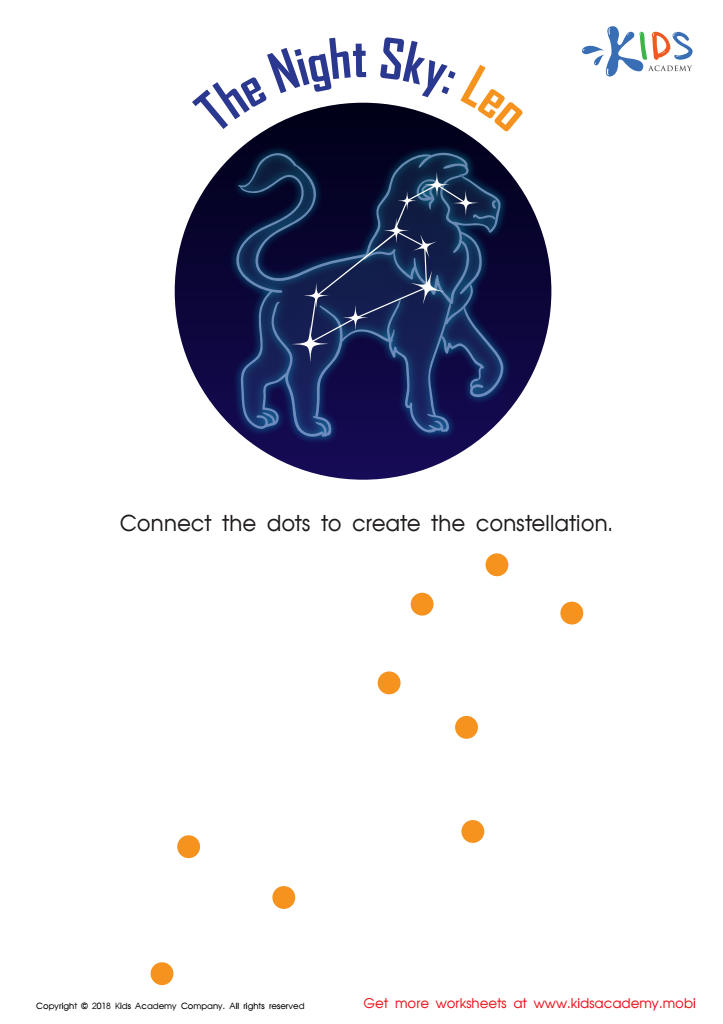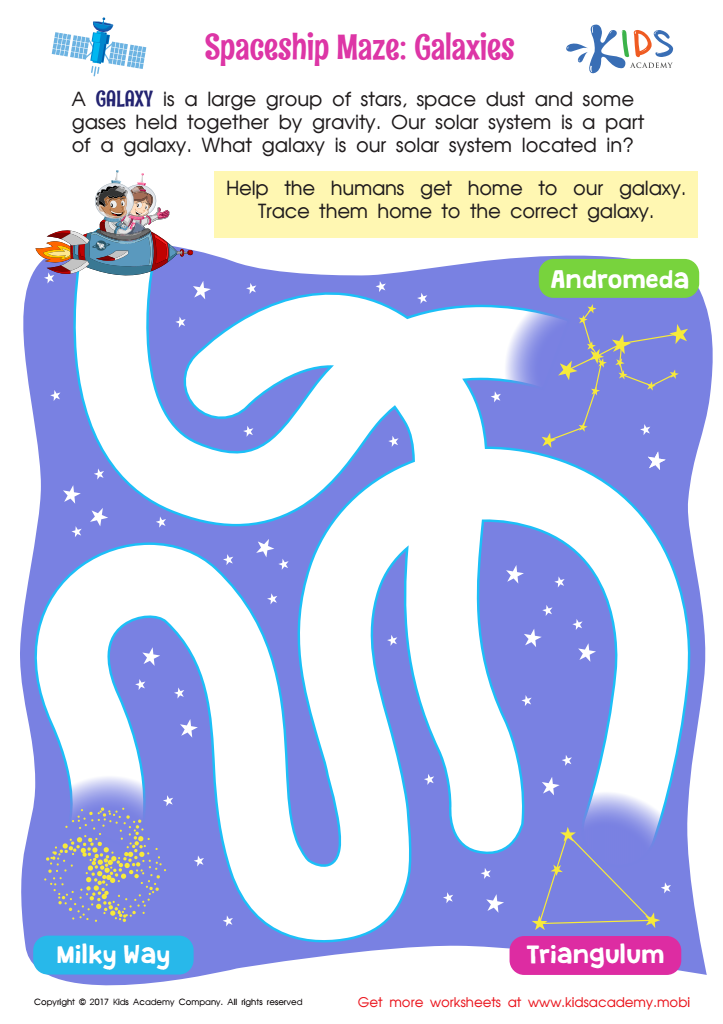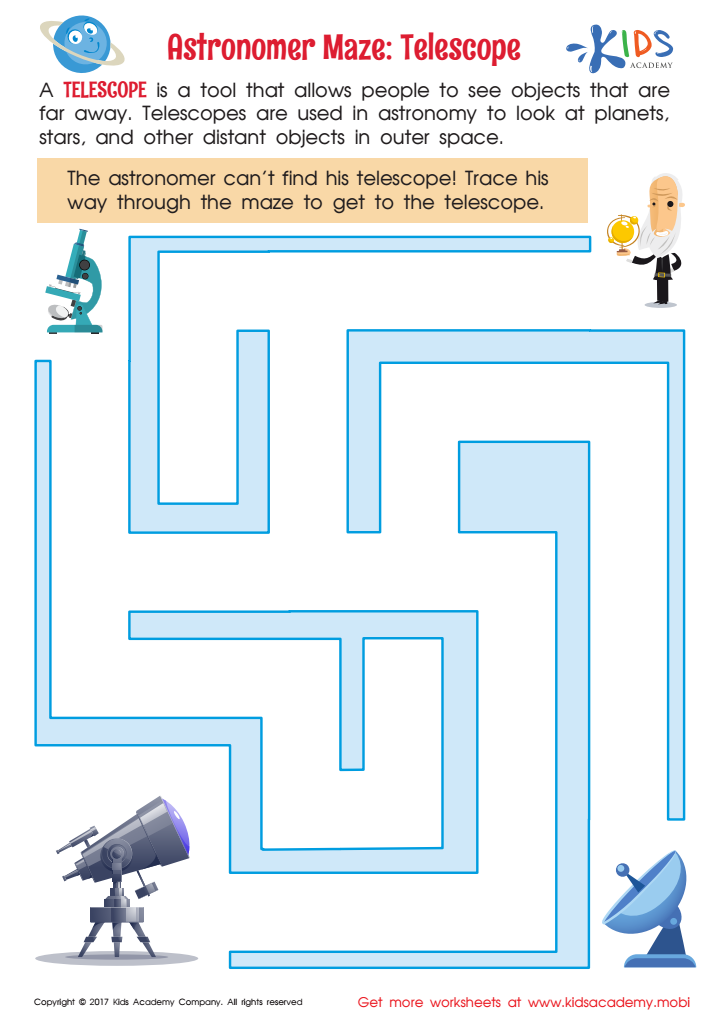Spatial awareness Normal Space Worksheets for Ages 5-7
3 filtered results
-
From - To
Boost your child's spatial awareness skills with our engaging Normal Space Worksheets designed for ages 5-7! These worksheets introduce young learners to essential concepts of space and spatial relationships through fun activities and exercises. Your little ones will enjoy exploring directions, positions, and distances while developing their critical thinking and problem-solving abilities. Aligned with early education standards, these worksheets make learning interactive and enjoyable, perfect for home or classroom use. Foster creativity and imaginative thinking in your child as they enhance their spatial understanding—critical for future academic success. Download our free printable worksheets and watch your child's confidence soar!


The Night Sky: Leo Worksheet


Spaceship Maze: Galaxies Worksheet


Astronomer Maze: Telescope Worksheet
Spatial awareness, particularly in the context of “Normal Space,” is foundational for children aged 5-7 as it significantly impacts their cognitive, social, and physical development. This skill involves understanding the position and relationship of objects in space, which is crucial for a range of everyday tasks and future learning.
For parents and teachers, nurturing spatial awareness can enhance a child's abilities in mathematics, reading, and problem-solving. Children with strong spatial skills are typically better at visualization, critical thinking, and reasoning—all essential for academic success. This development stage also fosters independence; children learn to navigate their environment, which boosts confidence and self-efficacy.
Furthermore, engaging children in activities that promote spatial awareness, such as building with blocks, playing with puzzles, or participating in sports, encourages collaboration and communication with peers. These experiences are essential for developing social skills, as children learn to negotiate space and respect others' boundaries.
In summary, prioritizing spatial awareness in young learners equips them with critical skills that underpin both academic and everyday success, making it an essential aspect of early childhood education. By focusing on these foundational skills, parents and teachers can promote a well-rounded development trajectory for children aged 5-7.
 Assign to My Students
Assign to My Students





%20(1).jpg)







